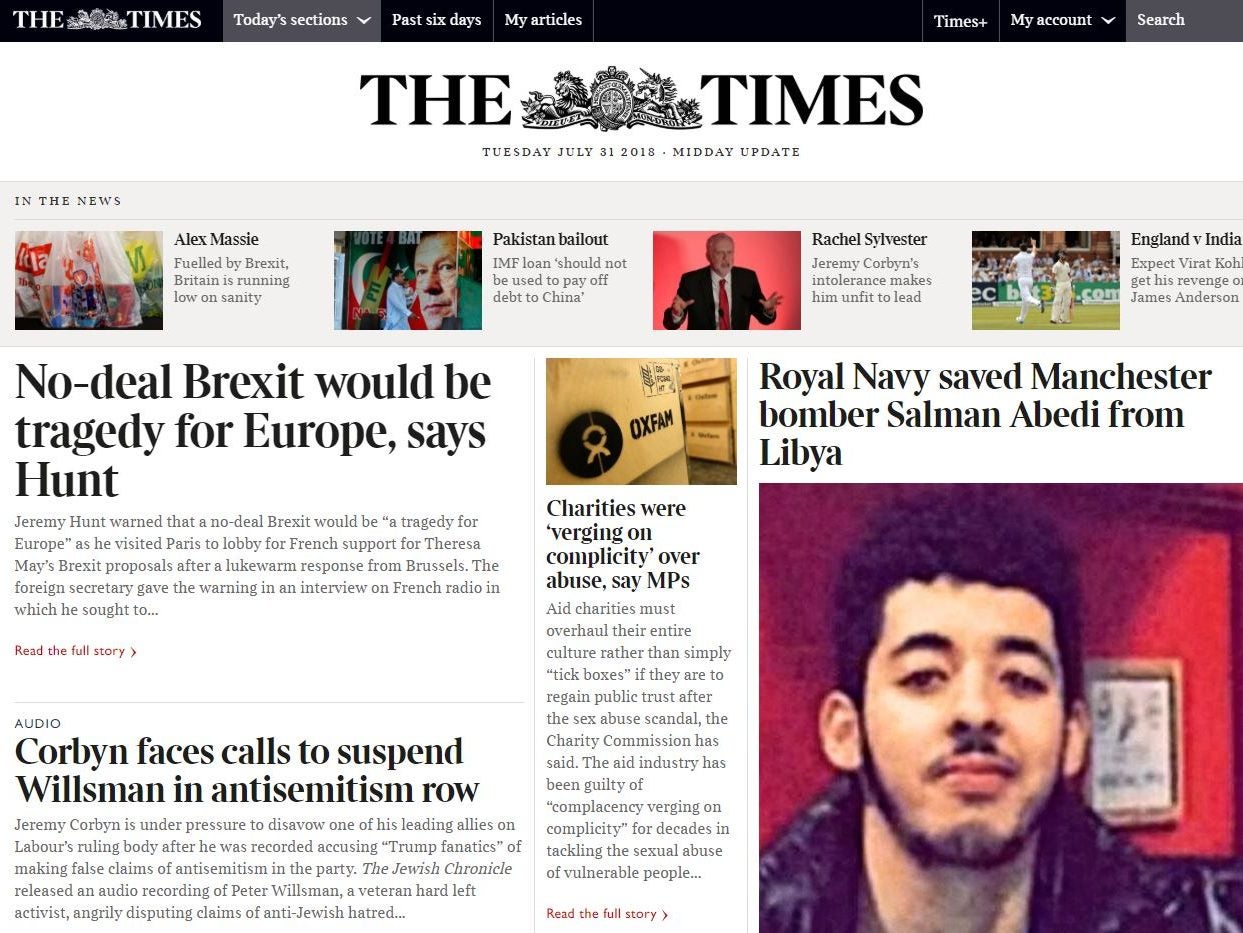
The head of digital at the Times newspapers has said he thinks publishers “made too many mistakes” when moving online and that paywalls are needed to safeguard quality journalism.
“When we first introduced subscriptions people thought we were crazy… if you look back on it, it seems very logical,” Alan Hunter told the Media Voices podcast.
“Journalism costs money and you have to pay for it one way or another.
“When you’re doing the kinds of investigations we do regularly on both papers and when you’re supporting professional newsrooms who take the quality of the copy very seriously you need the funds to pay for it.”
The Times and Sunday Times recorded its most successful year since introducing a paywall in 2010 and now claims to have 255,000 digital subscribers – outnumbering print subscribers for the first time as it marked 500,000 combined.
Hunter added: “In terms of editorial we very much stuck to what the Times and Sunday Times do best, which is focusing on quality journalism and occupying the centre ground of debate – we have voices from both sides of the spectrum.
“I think it’s fair to say that a number of our competitors have drifted off to the right and the left.”
Exclusive content is often the deciding factor on whether people will pay for a subscription, according to Hunter.
He said: “There is a lot of commodity content out there, we are trying to be different in everything we do from our columnist right through to our news stories and the lifestyle sections.”
He believes that publishers made too many mistakes when moving online: “One was giving away [content] for free, which people seem to be rectifying, and two was essentially thinking that they were newswires and because the internet allowed them to publish quickly that they should.”
Hunter added: “Despite the fact we are publishing less often people are coming back more frequently and reading more.”
He said that although people were sceptical about whether younger people would pay for subscription journalism, people’s attitudes had changed.
“The great myth was always that 20-something’s wouldn’t pay for it and now, like everyone else, we are finding that they will – especially as they get used to paying for things like Spotify and Netflix.”
He added: “There have always been paywalls around news, they were just called cover prices. If you think about it there’s a lot more free news around than there ever was before.”
Although the Times’ current paywall model has proved a success, Hunter sees the model moving towards a “flexible” or “smart” paywall where different subscription offers are available for people whether they want to read the paper every day or just get one or two articles.
“Our idea is that we have 500,000 subscribers and we hope in time to get 500,000 more at least,” Hunter said. “They probably all have a different way that they want to consume the content.”
He added: “You might want a push notification on the latest on the Brexit negotiations and I might get an email about the latest football transfers.
“For each individual we’ll use propensity modelling and get things to you at the right time. We think this could really increase engagement and hopefully conversions as well.”
Email pged@pressgazette.co.uk to point out mistakes, provide story tips or send in a letter for publication on our "Letters Page" blog
